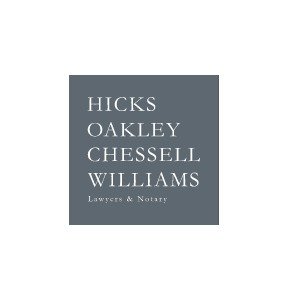Best Intellectual Property Lawyers in Mount Waverley
Share your needs with us, get contacted by law firms.
Free. Takes 2 min.
List of the best lawyers in Mount Waverley, Australia
About Intellectual Property Law in Mount Waverley, Australia
The Intellectual Property (IP) law in Mount Waverley, Australia, focuses on safeguarding and protecting human creativity, invention, and good will. This spans copyrights, patents, trademarks, design rights, and trade secrets. The IP laws safeguard those rights, giving the creators exclusive control over their inventions. Additionally, Australian IP law adheres to international standards of IP regulation.
Why You May Need a Lawyer
Dealing with IP issues can be complex due to the intricate nature of laws and conventions surrounding them. You may need a lawyer if you are applying for a patent, drafting a licensing agreement, initiating legal action for IP infringement, or need advice on compliance with IP laws. Furthermore, a lawyer can help you navigate through the complex process of legitimizing and securing your IP rights both domestically and internationally. It is essential to protect your ideas, designs, or creations from being exploited.
Local Laws Overview
In Mount Waverley, IP law is influenced by both domestic and international laws. Key local laws include the Patents Act 1990, the Trade Marks Act 1995, and the Copyright Act 1968. As a member of the WTO, Australia also observes the Trade-Related Aspects of Intellectual Property Rights (TRIPS) agreement. These laws collectively protect artistic works, inventions, symbols, names, images, designs, and secrets used in commerce.
Frequently Asked Questions
What is a patent?
A patent is a right granted for any device, substance, method, or process that is new, inventive, and useful. It is legally enforceable and gives the owner exclusive rights to commercially exploit the invention for the life of the patent.
How long does a copyright last?
In Australia, the general rule is that copyright lasts for the life of the creator plus 70 years. The duration can differ depending on the type of work.
What’s the difference between a trademark and a copyright?
A copyright protects original artistic or literary works; a trademark protects words, phrases, symbols, or designs distinguishing the source of the goods or services of one party from those of others.
Can I protect my IP overseas?
Intellectual property rights are usually territorial, meaning you are only protected in the countries where you have registered them. Yet, conventions like the Paris Convention allow you to apply for IP protection in member countries, based on your Australian filing date.
Is everything patentable?
No, not everything can be patented. Abstract ideas, natural phenomena, and laws of nature cannot be patented. Patents are usually granted to new, useful, and non-obvious inventions.
Additional Resources
The Australian Intellectual Property Office provides an immense amount of resources related to IP rights. Additionally, the Australian Copyright Council offers further resources on copyright law.
Next Steps
If you require legal assistance in Intellectual Property, it's advisable to reach out to a law firm specializing in IP. They can guide and assist you in the process of filing for patents, trademarks, and copyrights, as well as dealing with any infringement issues.
Lawzana helps you find the best lawyers and law firms in Mount Waverley through a curated and pre-screened list of qualified legal professionals. Our platform offers rankings and detailed profiles of attorneys and law firms, allowing you to compare based on practice areas, including Intellectual Property, experience, and client feedback.
Each profile includes a description of the firm's areas of practice, client reviews, team members and partners, year of establishment, spoken languages, office locations, contact information, social media presence, and any published articles or resources. Most firms on our platform speak English and are experienced in both local and international legal matters.
Get a quote from top-rated law firms in Mount Waverley, Australia — quickly, securely, and without unnecessary hassle.
Disclaimer:
The information provided on this page is for general informational purposes only and does not constitute legal advice. While we strive to ensure the accuracy and relevance of the content, legal information may change over time, and interpretations of the law can vary. You should always consult with a qualified legal professional for advice specific to your situation.
We disclaim all liability for actions taken or not taken based on the content of this page. If you believe any information is incorrect or outdated, please contact us, and we will review and update it where appropriate.
Browse intellectual property law firms by service in Mount Waverley, Australia
Mount Waverley, Australia Attorneys in related practice areas.









